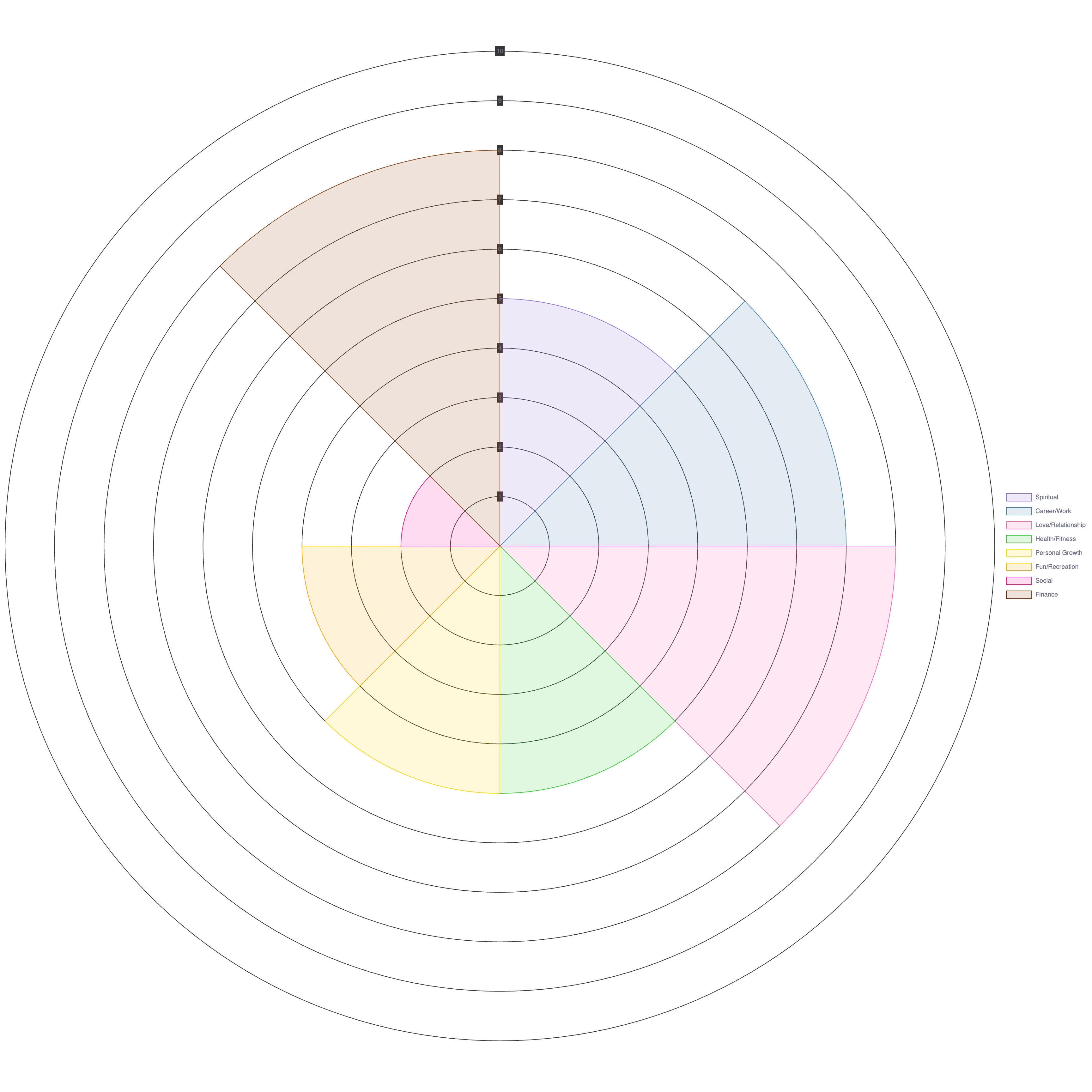The Wheel of Life is a popular self-assessment tool used in personal development and coaching to help people evaluate and balance different areas of their life. It’s essentially a circular diagram divided into segments, with each segment representing a key life area.

The traditional areas often include:
1. Spiritual/Inner Peace
Focus: Inner peace, values, and connection with a higher purpose.
Activities: Practices and activities that help you connect with your inner self, spiritual beliefs, and the broader universe.
Examples: Meditation, prayer, yoga, reading spiritual texts, attending religious services, spending time in nature, practicing gratitude.
2. Career/Work
Focus: Professional development, job satisfaction, and career goals.
Activities: Tasks and activities related to your profession, career advancement, and workplace environment.
Examples: Achieving career milestones, acquiring new skills, job performance, work-life balance, networking, and professional development.
3. Love/Relationship
Focus: Romantic relationships and close emotional bonds.
Activities: Actions and behaviors that nurture and strengthen intimate and loving relationships.
Examples: Spending quality time with a partner, open communication, romantic gestures, resolving conflicts, and shared activities.
4. Health/Fitness
Focus: Physical well-being and fitness.
Activities: Exercise, nutrition, and lifestyle choices that promote physical health.
Examples: Regular exercise, balanced diet, routine health check-ups, adequate sleep, and stress management.
5. Personal Growth
Focus: Self-improvement and personal development.
Activities: Activities that challenge you to grow mentally, emotionally, and intellectually.
Examples: Reading, taking courses, learning new skills, setting personal goals, practicing mindfulness, and self-reflection.
6. Fun/Recreation
Focus: Personal enjoyment and leisure activities.
Activities: Hobbies and activities done for relaxation and pleasure.
Examples: Playing sports, traveling, engaging in hobbies, watching movies, playing games, and any activities that you find enjoyable and relaxing.
7. Social
Focus: Interpersonal relationships and social interactions.
Activities: Engaging with friends, family, and community to build and maintain relationships.
Examples: Socializing with friends, attending social events, participating in community activities, joining clubs or groups, and volunteering.
8. Finance
Focus: Financial stability and management.
Activities: Managing your financial resources, planning for the future, and ensuring economic security.
Examples: Budgeting, saving, investing, managing expenses, financial planning, and debt management.
To use the Wheel of Life, you:
- Rate your satisfaction in each area on a scale (typically 0-10)
- Rating should be Based on intention not outcome
- Mark your score on each segment of the wheel
- Connect the marks to create a visual representation
References
- The Best Year of Your Life
- How to implement it in obsidian How to Do a Personal Retreat in Obsidian